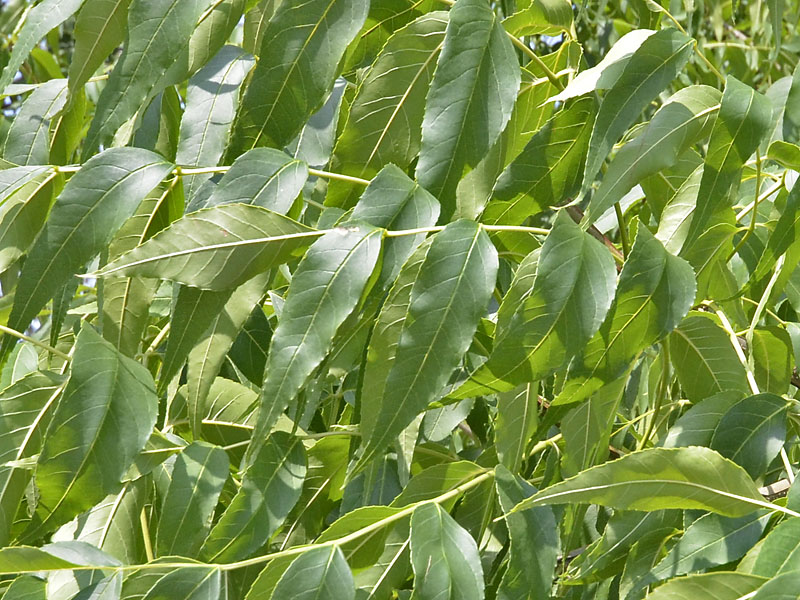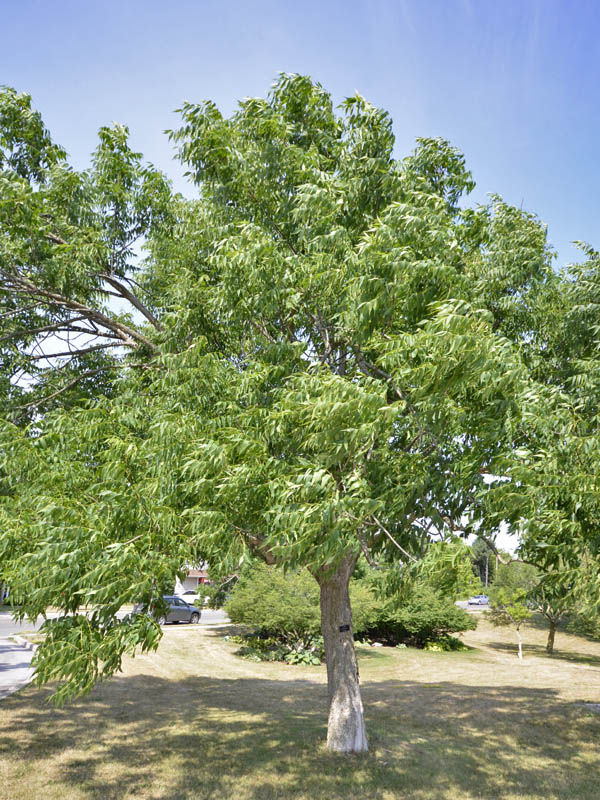
Woody > Fraxinus > Fraxinus quadrangulata > Fraxinus quadrangulata
Fraxinus quadrangulata
Blue Ash
Mike's
Opinion


"
A rare Carolinian species and named as such due to the blue dye that can be extracted from its bark. It is considered an important Fraxinus species today since it is purported to be resistant to the Emerald Ash Borer.
Michael Pascoe, NDP., ODH., CLT., MSc. (Plant Conservation)
"
| Family |
| Oleaceae |
| Genus |
| Fraxinus |
| Species |
| quadrangulata |
| Category |
| Woody |
| Type |
| Tree (deciduous) |
| Pronunciation |
| USDA Hardiness Zone |
| 4-7 |
| Canadian Hardiness Zone |
| 4 |
| Height |
| 20 m |
| Spread |
| 5 m |
Photographs
Description and Growing Information
Flowering Period
| General Description |
| A very rare tree, established as a threatened species by the committee on the status of endangered wildlife in Ontario. Along with its four sided twigs the purple flowers produce a very distinct smell. |
| Landscape |
| It is considered an important Fraxinus species today since it is purported to be resistant to the Emerald Ash Borer and may take the place of one of the more important street trees: white ash. |
| Cultivation |
| Easy to grow in well drained soil and where room is sufficient. Not particularly ornamental, more an oddity and distinct Carolinian species for the collector or naturalization. |
| Shape |
| An irregular and large crown of wide spreading branches. |
| Growth |
| Slow |
| ID Characteristic |
| 4 sided twigs and stems (square). |
| Pests |
| Emerald ash borer (Agrilus planipennis) is a destructive exotic beetle from Asia that bores into the xylem and phloem of the ash tree killing it within 1 - 5 years. All plants of this genus may be susceptible to ash dieback (Charlara fraxinea). |
| Habitat |
| Occurs in a few locations in Ontario on river edges and watershed areas on fine sand and silt type soils. |
| Bark/Stem Description |
| The young bark is smooth but soon fissured and scaly when aged. Twigs have 4 ridges or wings making them square. Bluish grey to brown grey. |
| Flower/Leaf Bud Description |
| Buds are rounded, slightly hairy and up to 1.2 cm long. |
| Flower Description |
| Flowers are perfect and are branched clusters of purplish flowers without petals. |
| Fruit Description |
| Fruit is broad winged and twisted with a small notch at the tip with the outer casing enclosing a flattened seedcase: dark green to grey in colour. Songbirds and rodents eat the seeds. |
| Colour Description |
| The autumn colour is quite poor, being pale yellow to green. |
| Notable Specimens |
| Along the bank of the Sydenham River in Mosa Township, south of Glencoe and along the Thames River around Deleware, Ontario, Canada. Also at the Royal Botanical Gardens, Burlington, Ontario, Canada. |
| Propagation |
| Seed stratification 60 days at 25°C, followed by 90 days at 5°C It has also been grafted on white ash rootstock however it is suspected that grafted trees may be susceptible to Emerald Ash Borer. |

